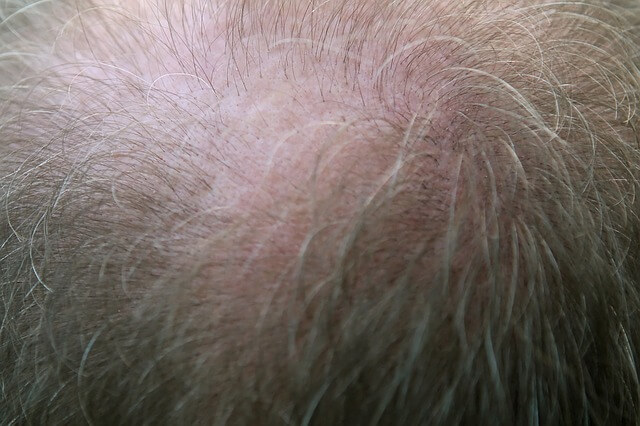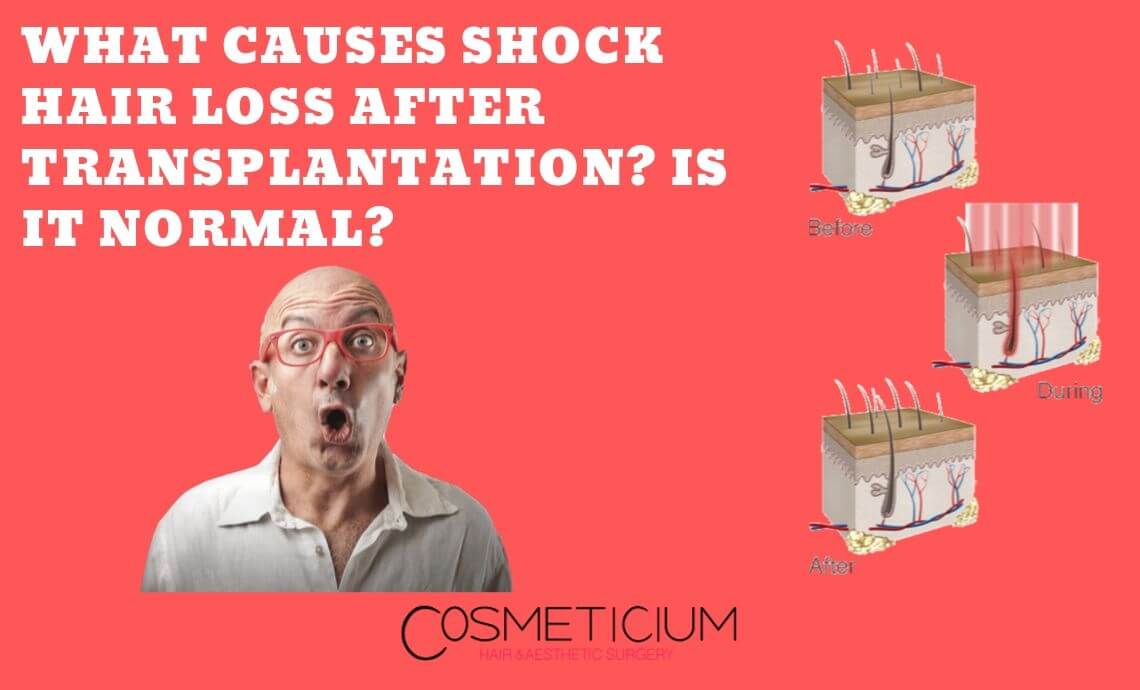After a while, hair transplantation patients may lose most of the hair transplanted as a result of shock hair loss. Because of this situation, inaccurate perceptions may occur in the way that the transplanted hair is not permanent and completely lost after a while. However, it should be known that the hair loss seen after the hair transplantation is completely normal and it does not harm the transplanted hair. So, hair loss is normal and there is no reason to worry.
What are the reasons for this shock loss after hair transplantation? When does the shock loss start and how is it reduced?
Table of Contents
What is Shock Hair Loss?
Grafts taken from the donor area are transferred to the non-hair area during hair transplantation. What is essential during this process is the transfer of hair follicles. However, hair strings are also transported during the procedure. Thus, in the first moments of the process, hair appears in the non-haired area of the patient. This situation makes hair transplantation patients quite happy, but this happiness is temporary. Sometime after the hair transplantation, almost all of the hair is lost. This sudden loss of transplanted hair is called shock hair loss.
Shock loss is one of the natural consequences of hair transplantation and is considered normal. In other words, the roots of the transplanted hair are not damaged and after a while, new hair starts to grow stronger from the roots. The resulting new hair is never lost and becomes permanent.
Hair transplantation is a long process, and this should not be forgotten. There is no such thing as getting your new hair immediately after hair transplantation and getting rid of baldness that quickly. After the shock hair loss, the hair needs to grow, strengthen and fully adapt to its new location. This means that approximately 1 year is needed to achieve the full results of hair transplantation. After 1 year of hair transplantation, you will have your new hair in its fullest sense.
You May Also Like: 7 General Misconceptions About Hair Transplantation

Causes of Shock Hair Loss
To understand the causes of shock hair loss, first of all, it is necessary to have knowledge about the general development of hair. Hair has different life processes like a living thing. These are growth, holding and loss. This cycle is repeated 10-15 times throughout people’s lives. A new hair comes out of the root of the lost hair and after the end of its life, a new hair strand is formed by the root. On average, the life of a hair strand is 7 years, but after the hair is lost, a new hair grows from the same root. This process takes place at different times for each hair follicle, not collectively, and is therefore often unnoticed.
Loss of hair at different times occurs only in a healthy state of life. These losses can be experienced collectively at unusual times. Examples of this are new-born babies. New-born babies have hair when they are born, but after a while, all of them fall out. Loss of hair leads to development of hair follicles and provides a positive effect. After a while, it is seen that the babies’ hair grows again.
As in the case of the baby example given above, a shock hair loss occurs after hair transplantation, which is considered completely normal. There may also be different situations related to the causes of shock hair loss. Some of these are:
- Micro traumas occurring while removing hair strands from the donor area
- Cooling the hair follicle
- Part of the root remains outside during hair transplantation
You May Also Like: What Kind of Care Should Be Done After Hair Transplantation?
Shock Hair Loss Does Not Negatively Affect Hair Roots
After the hair is transplanted to the channels opened for hair transplantation, their healing process begins. Microtrauma occurs during removal or at a different point, and the hair is broken and lost with the closure of the opened channels. At this stage, it is necessary to know that the root remains safe and the development continues. Hair follicles continue to progress in their natural processes and are not affected negatively by this loss.
These are the general causes of hair loss after hair transplantation. However, some experts argue that the reason for this may be different. According to these views, the cause of shock hair loss has not been determined yet. But regardless of the cause, all experts agree that shock hair loss has no negative impact.

When Does Shock Hair Loss Start?
Just like the reasons for the shock hair loss, its timing is also one of the most important objects of curiosity. The onset time of the hair loss is not constant and varies from person to person. In some people, hair loss begins one week later and generally occurs between 12th and 15th day after hair transplantation. In other words, losses will intensify as of the second week.
How to Reduce Shock Hair Loss
It’s not possible to prevent shock hair loss completely. Therefore, it should be known and accepted that this is a natural process. However, it is possible to reduce this loss with some precautions. These precautions must be recommended by the hair transplantation specialist. This means that you should not decide on your own and follow the precautions below. Here’s what to do to reduce shock hair loss:
- Removing individual hair strands during hair transplantation
- Removal of hair strands by hand
- Hair follicles to be kept outside as short as possible (The transplantation of the hair removed within 3 hours)
- Hair transplantation to be performed by a successful specialist in a clinic with sufficient technical capacity.
CONCLUSION
In addition to the above precautions, some medicines to be used after hair transplantation are known to have a shock-reducing effect. Shock hair loss is less common in patients taking 10 mg of biotin daily (vitamin B7). This medication also positively affects the hair growth process. You may use this medicine only as directed by your doctor. It is important that you start using it the day before hair transplantation so that the effect of the medication is timely.
In addition to biotin, drugs containing ginkgo biloba with a vasodilating effect may also be used. Such medicines provide better nutrition to the hair follicles and reduce shock hair loss. Please note that such medicines cannot be used without a doctor’s advice.

